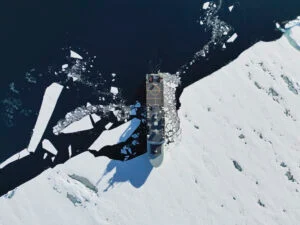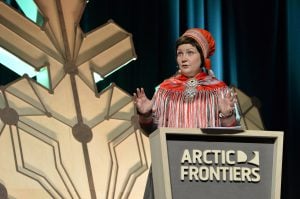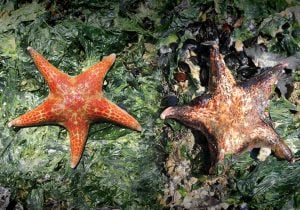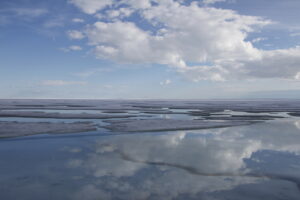
People & Culture
On thin ice: Who “owns” the Arctic?
As the climate heats up, so do talks over land ownership in the Arctic. What does Canadian Arctic Sovereignty look like as the ice melts?
- 4353 words
- 18 minutes
Environment
The Royal Canadian Geographical Society’s newest Explorer-in-Residence shares insights from her summers studying murres in the High Arctic — a region she calls an “early warning system” for climate change

We’re thrilled to welcome Emily Choy, the newest RCGS Explorer-in-Residence, to the Explore Podcast. Based out of McGill University, Emily is an award-winning expert on the impacts of climate change on the Arctic, with a focus on a sea-bird called murres.
Emily describes her summers on Coats Island in Hudson’s Bay, studying a colony of 30,000 murres that nest high on the island’s barren cliffs. Looking like a cross between a penguin and a puffin, these remarkable sea birds can dive up to 100 metres deep while hunting for fish. Emily explains how summer heatwaves are seeing murres die in their nests from heat exhaustion, and how they are being forced to change their diet as their staple food source, Arctic cod, shifts north searching for colder waters.
She also describes how her passion for nature was nurtured at her grandparents’ cottage near Lake Simcoe, her time spent studying beluga whales, and why she sees her role as a Black female scientist as an important one, especially in her work in the North.
Are you passionate about Canadian geography?
You can support Canadian Geographic in 3 ways:

People & Culture
As the climate heats up, so do talks over land ownership in the Arctic. What does Canadian Arctic Sovereignty look like as the ice melts?

Environment
The uncertainty and change that's currently disrupting the region dominated the annual meeting's agenda

Environment
As the impacts of global warming become increasingly evident, the connections to biodiversity loss are hard to ignore. Can this fall’s two key international climate conferences point us to a nature-positive future?

Environment
Warming trends continue due to human-caused climate change